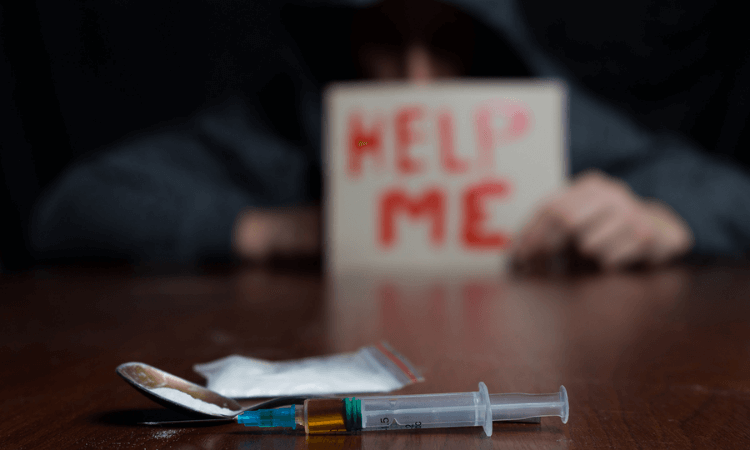Post-traumatic stress disorder (PTSD) is a mental health condition that develops after a traumatic event, affecting millions of people each year. For those with PTSD, the traumatic experience often leads to intrusive thoughts, flashbacks, and emotional distress.
Recovery In Tune in Davie, FL, offers PTSD treatments, giving people the support and therapy they need to regain control and improve their lives. Understanding PTSD, its symptoms, causes, and treatment options can help you or a family member find a path to healing.

What to Know About Trauma and PTSD
Trauma refers to an intense, disturbing experience. Traumatic experiences like accidents, natural disasters, violence, or the sudden loss of a loved one can make a person feel scared, sad, and helpless.
PTSD happens when a person is unable to process or cope with these traumatic memories. This mental health disorder makes daily life difficult. It affects a person’s thoughts and feelings. If untreated, it can even cause physical health problems.
Treatments, such as psychotherapy, medication, and trauma-focused therapies, can improve the lives of people with PTSD. Recovery In Tune offers compassionate and personalized care to support recovery and build a fulfilling future.
Causes & Risk Factors of Trauma and PTSD
PTSD is often caused by intense or life-threatening events. Some people are more likely to develop PTSD than others. Factors that may increase the risk of PTSD include:
- Family history of mental illness or PTSD
- Previous traumatic experiences in childhood or adulthood
- Lack of social support after the event
- Severity of the traumatic event
Events such as sexual assault, military combat, or witnessing a violent crime are linked to PTSD. People who face repeated trauma, like service members or those with a history of substance abuse, are also more likely to develop PTSD.
According to the World Health Organization (WHO), around 70% of people globally will experience a potentially traumatic event during their lifetime, but only a minority (5.6%) will go on to develop PTSD.
Common Symptoms of Trauma and PTSD
People with PTSD experience a range of symptoms. The symptoms of PTSD are grouped into four main categories:
- Intrusive memories: Flashbacks, nightmares, and unwanted thoughts about the traumatic event.
- Avoidance: Trying to avoid places, people, or activities that remind them of the trauma.
- Negative thoughts and feelings: Experiencing guilt, shame, or detachment from others.
- Reactive symptoms: Being easily startled, feeling “on edge,” or having outbursts of anger.
People with PTSD may also experience sleep problems, difficulty concentrating, and mood changes. These symptoms make daily life hard. They can also impact a person’s work, relationships, and physical health.
Types of Trauma and PTSD Treated at Recovery In Tune
Recovery In Tune offers treatments for various types of trauma and PTSD, with customized approaches for each individual:
- Acute stress disorder: This condition arises shortly after a traumatic event and involves intense fear and anxiety. Symptoms often include flashbacks, nightmares, and trouble concentrating.
- Complex PTSD: Stemming from prolonged or repeated trauma, such as childhood abuse or neglect, complex PTSD can cause difficulty with emotional regulation, relationships, and self-image.
- Uncomplicated PTSD: The most common form of PTSD, often developing after a single traumatic event. Symptoms include flashbacks, nightmares, and hypervigilance.
- Dissociative PTSD: This type involves dissociation, where people disconnect from thoughts, feelings, or identity. Symptoms can include feelings of depersonalization or derealization.
- Comorbid PTSD: Occurs when PTSD occurs with other mental health conditions, such as depression, anxiety, or substance abuse, which can intensify each other and require integrated treatment.
Each person’s experience of trauma is unique. Recovery In Tune provides specialized treatments to address the specific triggers and symptoms for each type of PTSD.

Now is the perfect time to begin to heal!
Long-Term Effects of Trauma and PTSD
If left untreated, PTSD can have serious long-term effects on both mental and physical health. Some of these effects include:
- Increased anxiety and depression
- Relationship issues due to withdrawal or emotional detachment
- Physical health problems like headaches, high blood pressure, or fatigue
- Risk of substance abuse as a way to cope with symptoms
By seeking treatment early, people can avoid these long-term effects and regain control over their lives.
Trauma and PTSD Treatment Program in Davie, FL
Recovery In Tune in Davie, Florida, has treatment programs for people suffering from trauma and PTSD. Our approach includes various types of therapy, including cognitive processing therapy (CPT) and eye movement desensitization and reprocessing (EMDR), along with other trauma-focused therapies.
Recovery In Tune’s mental health professionals help patients develop the skills to manage their symptoms and improve their overall quality of life.
Programs available at our treatment center include:
A partial hospitalization program (PHP) is a daytime program that offers intensive mental health support without requiring an overnight stay.
Recovery In Tune’s mental health PHP is perfect for people managing mental health issues as well as substance abuse or for those who need more support than traditional outpatient programs.
Group therapy, individual counseling, and skills training provide support to help patients regain control and confidence. These daily therapy sessions and interventions help patients manage their mental health while balancing relationships, work, and other aspects of everyday life.
Intensive outpatient programs (IOPs) are for people who need support but don’t require a full day of therapy. IOPs are flexible and allow patients to continue with their daily lives while still receiving the care they need.
The mental health IOP at Recovery In Tune offers flexible treatment, with sessions scheduled several days a week. Patients in IOP attend therapy sessions that focus on recovery and healthy coping strategies.
Many people with PTSD have co-occurring conditions, such as substance use or anxiety disorders. Recovery In Tune’s co-occurring disorder treatment addresses both PTSD and other mental health issues. By focusing on both, patients experience more complete care.
Healthcare providers work with adolescents and adults to address comorbidities that often go along with PTSD. Medical centers provide referrals to specialists who can offer both medication and therapy.
Possible side effects of medications or therapies used to treat PTSD include fatigue, nausea, or mood changes that may accompany treatments. That’s why it’s important to have compassionate and knowledgeable mental health professionals to help along the way.
Therapies for Trauma and PTSD at Recovery In Tune
Recovery In Tune offers PTSD treatment programs that use evidence-based therapies to help people with PTSD manage their symptoms and heal from trauma.
Here’s a look at some of the most effective types of therapy we offer:
The 12-step program helps people by offering a structured path to recovery. It focuses on shared experiences, personal responsibility, and community support. Many people with PTSD find strength and encouragement through the 12-step process.
The 12-step program helps patients build community and accountability. It is based on shared experiences and support, offering a sense of fellowship. This can be especially helpful for people who feel isolated due to their trauma.
CBT is one of the most common treatments for PTSD. It works by helping individuals stop negative thought patterns that worsen PTSD symptoms.
CBT at Recovery In Tune can reduce symptoms of anxiety, depression, and other issues. It can also help you improve your health, develop coping strategies, and overcome negative thought patterns.
By learning to identify unhelpful thoughts and replace them with positive ones, people can manage their symptoms more effectively.
Mindfulness meditation helps people stay grounded and calm. It involves focusing on breathing, sensations, and the present moment.
For those with PTSD, mindfulness can reduce anxiety, help with emotional control, and provide relief from intrusive thoughts.
Adventure therapy uses outdoor activities to help people develop confidence and self-awareness.
Yoga therapy focuses on physical relaxation and breathing exercises, promoting mental clarity and relaxation.
Both therapies work well for PTSD, helping patients process emotions while improving physical health.
Trauma therapy is a specialized type of therapy designed to help patients process traumatic memories in a safe, controlled environment.
Techniques used include cognitive processing therapy and prolonged exposure therapy, both of which have proven effective in treating PTSD. Trauma therapy is an essential part of PTSD treatment and helps people regain control over their lives.
Find Compassionate Care for Trauma & PTSD at Recovery In Tune
Recovery In Tune offers compassionate and professional care for people dealing with trauma and PTSD. We help patients through every step of recovery, using evidence-based therapies to improve mental health.
With a supportive community and experienced clinicians, Recovery In Tune provides the resources needed for true healing.
Contact Recovery In Tune today to discover how to heal and move beyond traumatic memories.
Trauma and PTSD Treatment FAQs
The best treatment for PTSD often combines different therapies, such as cognitive behavioral therapy (CBT), trauma-focused therapy, and sometimes medication.
Therapy options, including CPT, have been recommended by the National Center for PTSD, which operates under the U.S. Department of Veterans Affairs.
Medications like selective serotonin reuptake inhibitors (SSRIs) such as paroxetine (Paxil) and sertraline are often prescribed. SNRIs (serotonin-norepinephrine reuptake inhibitors) are sometimes prescribed to help treat PTSD.
Other antidepressants, like venlafaxine, are also used upon approval from the U.S. Food and Drug Administration (FDA). These medications work by improving mood and reducing symptoms like anxiety and depression.
PTSD treatment is effective for many people, especially when using evidence-based therapies such as EMDR and cognitive processing therapy. Clinical trials show that most people experience significant symptom relief with regular treatment.
PTSD treatment involves a range of approaches provided by healthcare providers to help people manage symptoms and improve their quality of life.
According to the Diagnostic and Statistical Manual of Mental Disorders (DSM), PTSD can be treated effectively through psychiatry, talk therapy, and certain medications.
While there is no complete cure for PTSD, symptoms can be managed successfully. With proper treatment, many people with PTSD lead healthy, fulfilling lives.
Sources
- World Health Organization (WHO). “Post-traumatic stress disorder”. https://www.who.int/news-room/fact-sheets/detail/post-traumatic-stress-disorder#:~:text=An%20estimated%203.9%25%20of%20the,events%20do%20not%20develop%20PTSD. Accessed on October 29, 2024.
- National Library of Medicine. “DSM-5 Diagnostic Criteria for PTSD”. https://www.ncbi.nlm.nih.gov/books/NBK207191/box/part1_ch3.box16/. Accessed on October 29, 2024.
- American Psychological Association. “Medications for PTSD”. https://www.apa.org/ptsd-guideline/treatments/medications. Accessed on October 29, 2024.